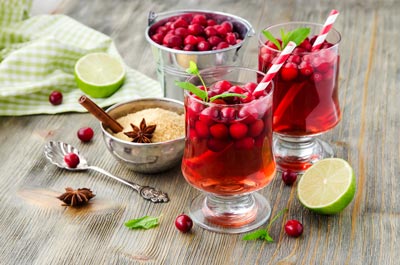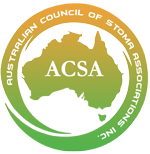Just because you now have an ileostomy you do not have to change your eating habits. You may now be able to eat foods you were having trouble with prior
to surgery. Each person is an individual and will react to each food type in their own way. It is important that you have a well balanced diet. You will find after your operation that the ileostomy starts to work with a fluid output. This will later become a thick paste. If your output remains of a fluid consistency see your Doctor or Stomal Therapy Nurse, as you may require medication to thicken the output.
Some foods will change the colour of your stool, for example: beetroot may turn your output red. It is important to chew all food well.
Reducing gas / wind production
- Eat your food slowly and avoid gulping or eating too much food at one time
- Eat regular meals, as skipping meals is more likely to increase gas production
- It may also be a result of swallowing air. Chewing gum, chewing with your mouth open, drinking with a straw, smoking and snoring can increase the amount of air you swallow.
Foods that may CAUSE gas / wind
- Cucumber
- Peas
- Beans
- Eggs
- Orange juice
- Onions
- Mushrooms
- Cabbage
- Brussel sprouts
- Broccoli
- Cauliflower
- Yeast
- Baked beans
- Garlic
- Chewing gum
- Fizzy drinks / carbonated beverages including beer
- Low calorie sweets and lollies (with sorbitol)
- Lactose (if intolerant)
Foods that may PRODUCE odour
- Cheese
- Beans
- Onions
- Lentils
- Cabbage
- Fish
- Asparagus
- Eggs
- Garlic
Some vitamins and medications
Foods that may REDUCE odour
- Fresh parsley
- Stewed or grated apple (no skin)
- Yalkult
- Buttermilk
- Cranberry juice
Foods to help THICKEN your stomal output
- Pasta
- Pumpkin
- Dumplings
- Custard
- Pancakes
- Pretzels
- Tapioca / Sago Rice
- Bananas
- Toast
- Mashed potato
- Apple sauce
- Uncooked corn flour
- Marshmallows
- Smooth peanut butter
- Jelly babies /beans
- White bread (not fresh)
- Fresh grated apple (no skin)
Foods that can CAUSE a BLOCKAGE
Highly fibrous foods, especially in a large quantity, will not pass easily through your stoma. These can cause a blockage in the small bowel. It is advisable either not to eat these foods or only eat in small quantities.It is important to chew these foods well.
- Mango
- Mushrooms
- Peas
- Pineapple
- Rhubarb
- Celery
- Coconut
- Popcorn
- Nuts
- Corn
- Coleslaw
- Dried fruits
- Some sausage casings
- Breads / rolls with seeds
- Figs
 What to do if a blockage occurs
What to do if a blockage occurs
- Stop solids but continue to drink fluids
- Have a warm bath and you may take a mild analgesic (pain killer)
- Rest with a hot water bottle on your abdomen – ensure the bottle is wrapped in a towel / cloth to avoid burning
- Massage your abdomen in a clockwise motion
- If pain continues, see your local doctor or emergency department
- Never take opening medicine (laxatives)
Fluid intake
- Drink regularly throughout the day
- Aim to drink 8 glasses (2000 ml) of fluid per day. Fluid intake should be varied and can include water, cordial, milk, nutritional drinks, soups, half strength fruit juice, tea, sports drinks (caution if you are a diabetic due to sugar content)
- Alcohol and drinks containing large amounts of caffeine (e.g. strong coffee and tea) should not be counted in your daily intake, as they can often increase fluid losses. Their intake should be kept to a minimum
- Increase your fluid intake on hot days when you are perspiring more than usual or when you are doing heavy exercise
- Do not drink a lot of fluid prior to a meal
- Replace lost salts / electrolytes by drinking sports drinks
- A banana a day can assist in keeping your potassium levels normal (consult a doctor if you have concerns regarding this)
- If you have a continuous watery output, contact your doctor or Stomal Therapy Nurse – dehydration can occur readily
Medications
Some medications or nutritional supplements may alter the colour, odour or consistency of your stool. If you have any questions about medications you are taking and the effect it may have on your ileostomy (especially when commencing a new medication), ask your doctor, pharmacist or your Stomal Therapy Nurse.
“Source: Prepared by the Australian Association of Stomal Therapy Nurses Inc. Education and Professional Development Committee, www.stomaltherapy.com“
